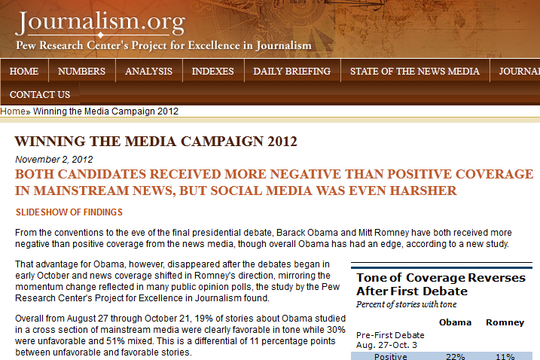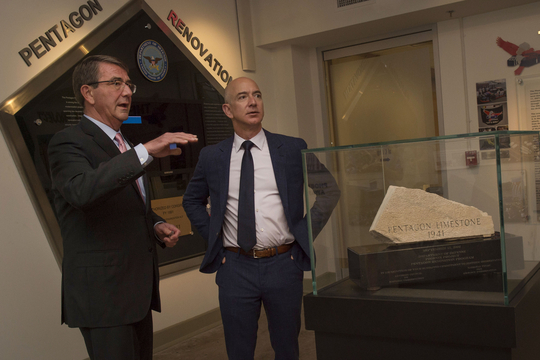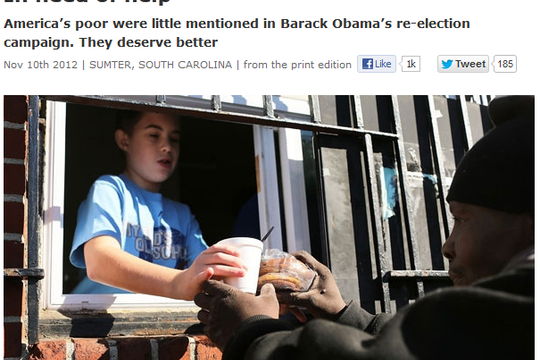
Sommige conclusies die Pew trekt zijn voorspelbaar - over Barack Obama wordt minder positief bericht dan in 2008 - maar ze ontdekten ook interessantere evoluties. De toon waarop over de kandidaten wordt geschreven, is tijdens de campagne enkele keren helemaal omgeslagen:
From the conventions until the first debate, a period of improving polls for Obama, Romney suffered his period of the most negative coverage; just 4% of stories about him were positive while 52% were negative. Coverage of Obama during this period was fairly evenly split (20% positive vs. 24% negative). That narrative reversed sharply with the first debate. For the next two weeks, Romney saw the mixed treatment (23% positive vs. 23% negative) while Obama was caught in the critical loop, with 12% positive and 37% negative. After the second debate, coverage returned to its more general pattern, with an edge for Obama.
Dat geldt echter niet voor alle media:
MSNBC and Fox, stand out from other mainstream media outlets. And MSNBC stands out the most. On that channel, 71% of the segments studied about Romney were negative in nature, compared with just 3% that were positive-a ratio of roughly 23-to-1. On Fox, 46% of the segments about Obama were negative, compared with 6% that were positive-a ratio of about 8-to-1 negative.
De sociale media zijn nog meer los gezogen van de realiteit:
This treatment in the mainstream media also differs markedly from what the study finds in the newer realms of social media: Twitter, Facebook and blogs. There, the narrative about both men has been relentlessly negative and relatively unmoved by campaign events that have shifted the mainstream narrative-more a barometer of social media user mood than a reflection of candidate action. On Twitter, for instance, the conversation about the campaign has consistently been harsher for Romney than for Obama. On Facebook, the tone improved for Obama in October with the debates, despite the sense that the president had stumbled in the first one.
De 'horse race coverage', waarbij de campagne wordt verslagen als een sportwedstrijd, is minder aanwezig dan vier jaar geleden (38 procent van de items tegenover 53 procent in 2008), maar tijdens de weken van de televisiedebatten blijft dat het overheersende kader:
During the three-week debate period studied, October 4-21, horserace coverage grew, filling nearly half of all the stories about the campaign (47%), the largest of any period in the study. In other words, rather than a window to examine the candidates' ideas at more length, the debates became a frame about campaign momentum to a greater degree than the rest of the campaign.
Enkel 22 procent van de totale aandacht ging naar inhoudelijke vraagstukken, met een grote voorkeur voor binnenlandse onderwerpen boven het buitenland. De economische staat van de VS werd veruit het uitgebreidst besproken, hoewel opvallend minder dan in 2008.
Het volledige rapport vindt u hier




![mmfa_logo300[1]](/sites/default/files/styles/apache_landscape_small/public/WP_MIGRATED_MEDIA/wp-27682_mmfa_logo3001.gif?h=9270d083&itok=6VWfflNr)